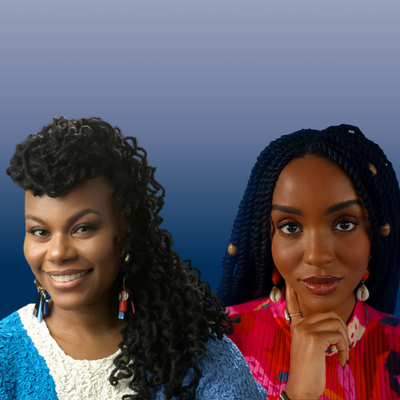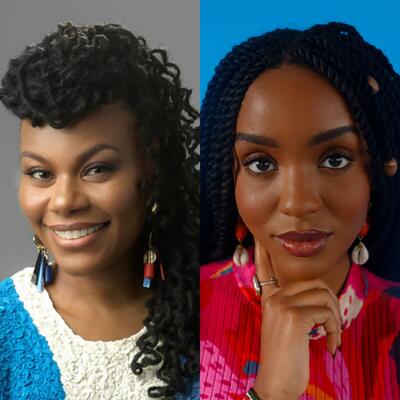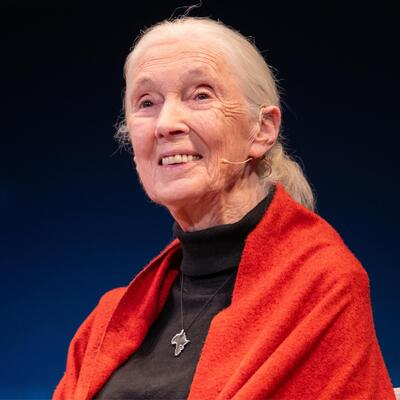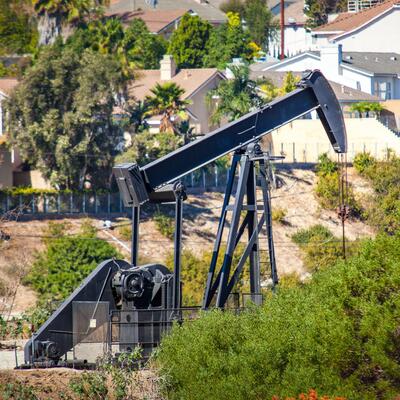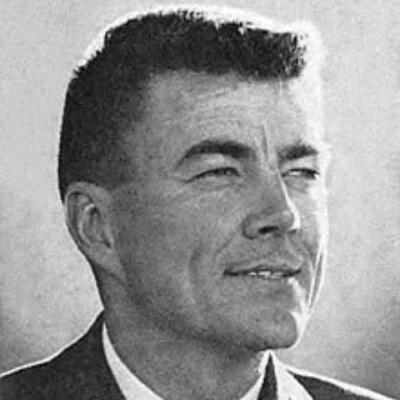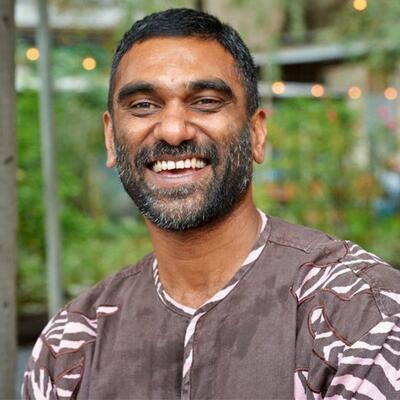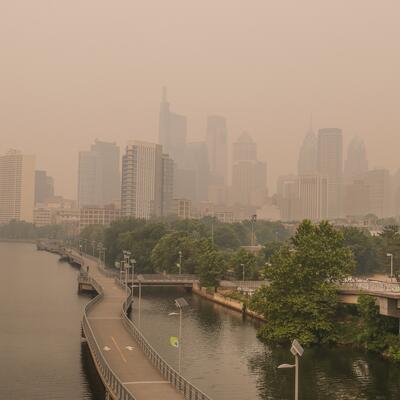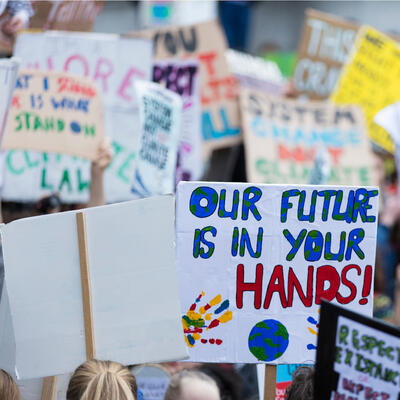
If You Won't, We Will: Youth Action on Climate
Guests
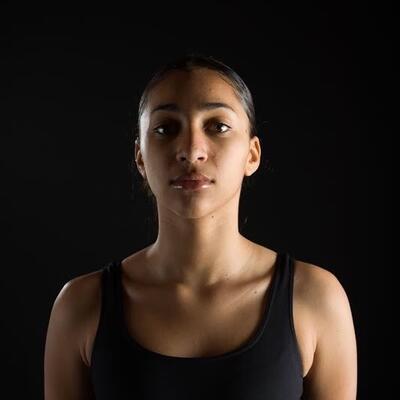
Isha Clarke
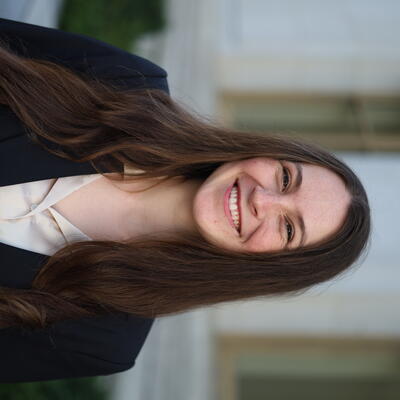
Sarah Goody
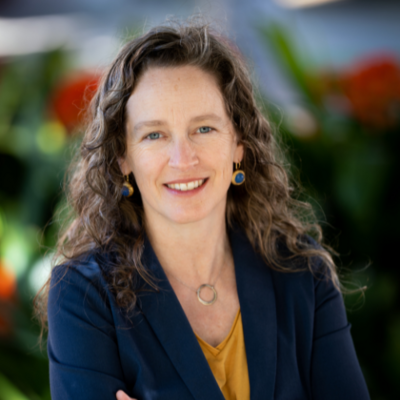
Julia Olson
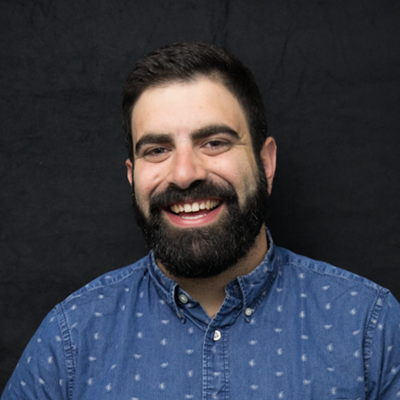
Ben Wessel
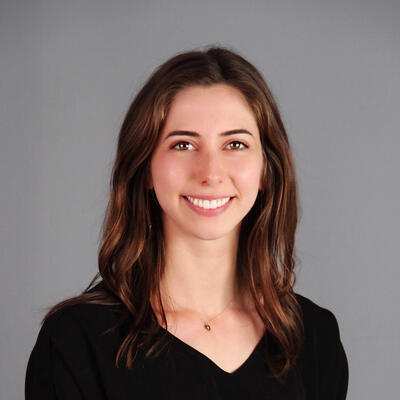
Morissa Zuckerman
Summary
Although many climate conversations talk about impacts on future generations, all too often those younger generations are not at the table or in the room. So how are young people taking charge of their climate future? For Isha Clarke, a high school student and activist from Oakland, California, by speaking truth to the senior U.S. Senator from her state.
“I think that truth is respectful and that you can speak truth in a way that is compassionate and authentic,” says Clarke, who recently gained fame for a viral video in which she confronts Democratic Senator Dianne Feinstein over the Green New Deal.
“I think the conversation now isn’t really about Senator Feinstein anymore,” Clarke says as she reflects on that experience and the ensuing coverage, “it's really about politicians in general and power holders in general, who aren’t and haven't been taking the necessary steps to reverse this climate crisis.
Feeling a similar frustration at her elders’ failure to act more urgently, 14-year old Sarah Goody organized a climate strike in San Francisco.
“Why study for a future that’s not gonna exist?” says Sarah in response to passers-by who question why she’s sitting on a sidewalk rather than in a classroom, “I need to be here now and fighting now for my future.”
Sitting alone outside iconic buildings can be a lonely endeavor, so other slightly-less young activists have found their climate calling by getting involved in more organized movements.
“I see [it] as a civic duty to be involve to be socially engaged in whatever way I can,” says Morrisa Zuckerman, Bay Area chapter coordinator for the Sunrise Movement, the grassroots organization behind the Green New Deal. She and her colleagues have been pressing lawmakers and candidates to make climate action a top priority – and it’s working.
“This Democratic presidential primary is talking about climate change in a way that I don't think any of us necessarily expected,” enthuses Ben Wessel, Youth Vote Director at NextGen America, the environmental advocacy organization founded by billionaire activist Tom Steyer.
Wessel has been impressed by the diversity of motivations that have recently been drawing young people to climate politics. “This is one intersectional movement that has to address our racial injustices our climate injustices and our economic injustices,” Wessel says, “I actually think the Democratic primary electorate is recognizing that more than ever before.”
Elections have consequences; but without more fundamental changes, shifting political winds can erase hard-fought carbon reductions. That’s why for Julia Olson, Executive Director of Our Children's Trust, the most effective climate solution lies in judicial rather than legislative action.
Olson is chief legal counsel for plaintiffs in Juliana versus United States, the lawsuit brought by 21 young people accusing the federal government of violating their fundamental rights under the Fifth Amendment to life, liberty and property by knowingly promoting and subsidizing an energy system that damages climate.
“What we hope to do through our case in lifting up the voice of youth in the Judiciary,” Olson explains, “is to secure the binding constitutional mandate that forces the people in the presidency and in the legislature to actually adopt laws and policies that comply with its constitutional obligation.”
Related links:
Sunrise Movement
NextGen Rising
Youth v. Gov (Juliana v. United States)
Our Children’s Trust
Plant for the Planet
Full Transcript
Greg Dalton: This is Climate One, changing the conversation about energy, the economy, and the environment.
Julia Olson: 21 young people have sued the federal government for violating their fundamental rights under the Fifth Amendment to life, liberty and property.
Greg Dalton: For some young people, a destabilized climate means an unstable future.
Julia Olson: A federal judge has recognized that we all have a right to a climate system capable of sustaining human life under the U.S. Constitution.
Greg Dalton: So how can we get the adults in charge to take climate change more seriously?
Isha Clarke: Addressing that climate change is real and man-made that's not enough anymore. You have to talk about what solutions you are planning to implement because at this point we have no time to waste. We know climate change is real, what are you gonna do about it.
Greg Dalton: Youth taking action. Up next on Climate One.
Greg Dalton: How are young people taking charge of their climate future? Climate One conversations feature oil companies and environmentalists, Republicans and Democrats. I’m Greg Dalton.
Greg Dalton: Many climate conversations talk about impacts on future generations. But all too often, young people are not at the table or in the room.
Morissa Zuckerman: As young people looking towards a future that is increasingly unstable, I see this as a civic duty.
Greg Dalton: Morrisa Zuckerman is Coordinator for the Bay Area chapter of the Sunrise Movement, the grassroots organization behind the Green New Deal. She and her colleagues have been pressing lawmakers and candidates to make climate (action) a top priority – and it’s working.
Ben Wessel: This Democratic presidential primary is talking about climate change in a way that I don't think any of us necessarily expected.
Greg Dalton: Ben Wessel is Youth Vote Director at NextGen America, the environmental advocacy organization founded by billionaire activist Tom Steyer. Elections have consequences; but without more fundamental changes, shifting political winds can erase hard-fought carbon reductions.
Julia Olson: What we hope to do through our case is to force the presidency and the legislature to actually adopt laws and policies that comply with its constitutional obligation.
Greg Dalton: Julia Olson is Executive Director of Our Children's Trust and chief legal counsel for plaintiffs in Juliana versus United States, the lawsuit brought by 21 young people accusing the federal government of failing to protect their constitutional right to a healthy climate. We’ll hear from all three of them in the second part of today’s show.
Greg Dalton: First, I sit down with two teenage climate activists from the San Francisco Bay Area. Sarah Goody is a 14-year-old student who has organized a climate strike in San Francisco. Isha Clarke is a high school student and activist in Oakland, California, who recently gained fame for a viral video in which she confronts Democratic Senator Dianne Feinstein over the Green New Deal. I began by asking Isha to describe what happened in that moment outside the senator's office.
Isha Clarke: There was a crowd of about 100 people very lively, very passionate and I spoke and it was great. And there were some kids or youth activists, excuse me, from -- very important, from Bay Area Earth Guardian's crew who wanted to present a letter that they had written to Sen. Feinstein and they invited all the young people who were there to go out and present the letter. And just for some reason she happened to be in her San Francisco office that day and they invited us up after some pushback and here you have the renowned Sen. Feinstein interaction.
Greg Dalton: Well let's go to that. In early 2019 a group of middle and high school students have this testy exchange in her office. Here’s Sen. Feinstein in that video talking about her climate proposal and she's challenged by a high school student.
[Start Playback]
Dianne Feinstein: I will give you a copy of what we do support. And you can take a look at it and if you got a problem with it, you can let me know. But I think it has a much better chance of passing than what this is because there is no way to pay for what gets done so nothing will happen. So you be the judge you take a look at it we’re gonna get your copy --
Isha Clarke: But we have come to a point where our earth is dying literally. And it is going to be a pricey and ambitious plan that is needed to deal with the magnitude of that issue. And so we’re here asking you to vote yes on the resolution for the Green New Deal because that is the only way that can work --
Dianne Feinstein: That resolution will not pass the Senate. And you can take that back to whoever senator here.
Isha Clarke: Why do you think it won’t pass?
Dianne Feinstein: I’m telling you because it doesn’t have a single Republican vote. And the Republicans control the United States Senate.
[End Playback]
Greg Dalton: Sen. Feinstein talking with Isha Clarke. Senator Feinstein issued a tweet a statement thereafter saying I want the children from the Sunrise Movement to know they were heard loud and clear. I've been and remain committed to doing everything I can to enact real meaningful climate change legislation. So Isha Clarke, tell us what it was like to go stand there toe to toe with a political legend in California.
Isha Clarke: It was, you know, I think for me it was less about the actual interaction and what happened after that then what happened after that. There was I felt accountability to what just happened and for me as a young person as a person of color I’m kind of used to people talking to me like that, let’s just be real. And so when I was in that interaction I didn't really recognize how disturbing it was until I saw that the video hits 10 million views on Twitter and was all over CNN and all over the news. And for me it was really powerful to have my voice become such an important way in politics and media. And I think the conversation now isn’t really about Sen. Feinstein anymore and it's really about politicians in general and power holders in general, who aren’t and haven't been taking the necessary steps to reverse this climate crisis.
Greg Dalton: You’ve also said that Sen. Feinstein learned and gained some respect for you. How do you think it affected her?
Isha Clarke: You know, I hope that all that is true and but, you know, the reality is that I don't really know how she responded to the interaction and I would love to have a conversation with her if she's willing about next steps proceed in a more productive manner. I hope that in watching the reaction of that interaction she like you said learn from it and realized the power of her voice, especially to young people to the future generations. And though she's been an extremely powerful force in American politics that there are still things that she could have done and she didn't or, you know, and that goes for her peers as well. And so I think that conversation needs to be had about holding our politicians even who were powerful people accountable because there's always something more that can be done.
Greg Dalton: And how did this sudden fame affect you. You were on Amy Goodman which is like wow, you know, how do this being suddenly I mean you're a junior in high school being thrust into this national spotlight. What was that like?
Isha Clarke: It was crazy. I mean I know I’m dope I love myself and I love -- it was so, thank you, it was really cool to have Amy Goodman in my earpiece that was crazy. And, you know, getting all of this attention and that was really cool and, you know, I’m just a kid from Oakland and now I’m like on national news and some people know who my name is and are like listing it next to AOC, like that’s crazy. But, I think that for me what was important from that wasn’t my fame but my new platform. And like that I can actually use my voice in a way that is impacting people who can make real policy change can make the change that I've been wanting for so long. And so I just feel grateful to be able to have had and hopefully continue to have the spotlight to have my voice heard in a way that's really impactful and meaningful.
Greg Dalton: You say that respect is very important to you, you take it to every place you go and yet there you were kind of interrupting a senator. How do you challenge power by being respectful? Is there a contradiction can you do both?
Isha Clarke: You know, I think that truth is respectful and that you can speak truth in a way that is compassionate and authentic and to me that is respect. And I was very intentional in, you know, I recognize that she is a well-respected politician she is an elder in the community and that I was to address her accordingly. But at the same time I felt a very, I thought a responsibility to tell her the truth and to bring the truth to her and that if she was gonna ignore the truth that I had to continue to push my voice and to make sure that my voice was being heard in a space that she was trying to bring that down in.
Greg Dalton: Sarah Goody, you had a climate awakening in, I think it was in sixth grade. So tell us about that, you know, how you didn’t know much about climate your journey to where you are now being a regular climate striker.
Sarah Goody: Yeah, so I got involved with climate change in sixth grade after learning about climate change from my sixth-grade teacher Ms. Rebecca Newborn. And once I learned about climate change I was absolutely terrified. I couldn't believe that the world had been hiding this issue for me for so long. You know I looked at all my classmates and I thought how many of them had actually known about this before this had started because truthfully it was almost none. And after that I started to feel accountable for what was happening. And I really wanted to make a difference and I did that through eventually joining an organization called Greening Forward which is empowering youth to act for climate change and getting involved. And after that I was at an event in New York for Greening Forward when I met Alexandria Villaseñor who is a 13-year-old climate striker. She has currently been striking in front of the U.N. for I believe 19 weeks now. And I met her and was completely in awe, you know, she had brought all this attention and power to striking for climate change. And it's part of a movement called Fridays for Future which was started by youth activist Greta Thunberg in Sweden. And she brought this to the U.S. and really worked and got people involved with it here in the U.S. because, you know, climate change is affecting all of us not just those who are in Sweden it's everywhere. So I was really inspired by her and I went home and I started striking on my own in San Francisco. I started in front of City Hall and now I’m in front of the Ferry Building on every Friday, so yeah.
Greg Dalton: So Sarah Goody, what's that like you go in front of iconic public building you sit there by yourself, are you by yourself?
Sarah Goody: Yeah.
Greg Dalton: What it’s like what do people say to you? What’s that experience like being a 14-year-old sitting out there in public saying I'm striking for climate?
Sarah Goody: Yeah, it’s a little bit daunting I would say. People are definitely giving me stares, you know, why aren’t you in school, you shouldn’t be doing that, you know, I’ve had people come up to me climate change isn’t real go home. Like go to school, you should be in school but no, you know, why study for a future that’s not gonna exist, you know, I need to be here now and fighting now for my future. And I really just have to focus on the positive and focus on those people who do come up to me and I’m really like wow, like I am so glad. And it’s knowing that those people do exist that you believe in climate change and do stand up for what's right and it's really empowering to meet those people because I feel fulfilled and like I'm doing what I need to be doing.
Greg Dalton: What do your parents think about skipping school?
Sarah Goody: At first they were kind of skeptical but, you know, as a good student I think they're really supportive of me and my passions and they really believe that I'm doing this for the right cause and by doing this I’m standing up for not just myself but for my generation as well as future generations for what needs to be taken into account now. And they’ve been really supportive this whole time and yeah, they’re awesome.
Greg Dalton: You’re listening to a Climate One conversation with two high school activists frustrated by their elders’ failure to act more urgently on climate. Coming up, we’ll hear more from Sarah Goody and Isha Clarke.
Isha Clarke: Our task is to fuel our fear into passion and determination. And I tell myself every day that there is no other option but to win this fight.
Greg Dalton: Plus we’ll check in with the lawsuit brought by 21 young people accusing the federal government of violating their Constitutional right to a healthy climate.
Julia Olson: The founding fathers put in the Constitution that they were creating the government in order to protect not just themselves but posterity which is future generations. So this is about the enduring value of our Constitution and our nation.
Greg Dalton: That’s up next, when Climate One continues.
Greg Dalton: This is Climate One. I’m Greg Dalton, and we’re talking to Isha Clarke and Sarah Goody – two student activists fighting for climate action. Let’s hear what Isha and Sarah had to say about another young activist on the other side of the world. As a 10-year-old, Sagar Aryal began organizing in his home country of Nepal and making connections with other young people across the globe. Aryal now works with Plant-for-the-Planet Initiative, a tree planting organization founded by a nine-year-old from Germany. We spoke to Aryal about his life path and how he's accomplished so much before the ripe old age of 23.
[Start Playback]
Sagar Aryal: I never imagined that Mount Everest the tallest mountain in the world would lose its snow. And that's something very troublesome for people who live in the foothills of Himalayas because the mountains it balances climate provides freshwater and tourism business for Nepal’s economy. And when I came to hear about the fact that the world production of greenhouse gases, the rising temperature actually created havoc in climate crisis, I wanted to do something. I was 10 years old when I first started a nonprofit initiative in Nepal. My peers supported me we started a readers club. We wanted to read about this issue, we want to know what's going on and just when we started in about two to three weeks we had more than 3,000 books collected for us to read. In 2010, I was in a children conference in Norway and I met a lot of other young people who were doing similar things. And there I heard about Plant-for-the-Planet was founded by a nine-year old kid and a bunch of other teenagers were leading it. I felt that I was not alone trying to change the world, or trying to change the climate crisis in a way because there I came to see that there are many, many other more children who have similar visions for the world and I wanted to be part of it. When I joined Plant-for-the-Planet, the goal was to plant a million trees. And now our goal is actually to plant a trillion trees around the world. It's very important that young people today should not rely on political promises, and depend for others to change the world because we've seen recent events like Brexit where if only all the young people had taken part the outcomes would have been different.
[End Playback]
Greg Dalton: That was Sagar Aryal, Chair of the Board of Plant-for-the-Planet. So Isha and Sarah your reaction to seeing someone like that.
Isha Clarke: It's very powerful. And, you know, I think there needs to be a mix of people fighting for what we're calling the movement and people who are implementing tangible things, you know, and they're both equally important and impactful. And so to see someone take on planting a trillion trees, that's incredible. And I love trees, I love oxygen, I love seeing green. So all power to them.
Greg Dalton: Sarah Goody.
Sarah Goody: Yeah, definitely it's amazing to see that not only is it, you know, a lot of people tend to think of the U.S. or places where it's really apparent that people are acting up for climate change. But you know, in other places I believe it was in Nepal, yeah Nepal, you know it’s great to see that other places are getting involved, because it's not just a problem facing one country it’s a problem facing the world and humanity as a whole. It's not just a group, it's everyone. And the fact that he is, you know, taking the initiative and starting his own thing, you know, planting a trillion trees that’s a lot. But I think that’s definitely showing the power of youth and how we really have this undisturbed passion, you know, it’s not swayed by money or greed or work or anything. It's really true passion that comes from within us. And it really seems as though this movement is really being led by youth and that's another great example of how.
Greg Dalton: Isha Clarke, how has this affected your voice and your identity, this experience?
Isha Clarke: I feel like I have become so much stronger and more grounded in who I am and I feel like I've started developing more of the courage to be who that is in every space, you know, in a lot of places it's hard for a little black girl with her fist up to come in screaming and so I've had to really be okay with that and know that that is an important voice in the room. And so through exercising and having to practice how to do that how to articulate myself while still being authentic and truthful has definitely lifted me.
Greg Dalton: Sarah Goody, how about your identity and your voice through this experience. You’re doing something very lonely.
Sarah Goody: Really I think activism and being involved in climate change has really led me to find myself and my passions and to really feel like I can stand up for what I believe in. And I can now, you know, talk to people about and I feel like by doing this, I have really, you know, made a den in myself and really found who I am and found what my purpose in life is.
Greg Dalton: Do you talk about climate, Sarah Goody, at school or do you find it hard to talk to regular teenagers about the climate situation?
Sarah Goody: Yeah, well I've always been told I’m like a very wise beyond my age and very mature. So, you know, when I see these people I see them kind of as a younger version of myself someone who's not really as mature someone who doesn't have the same skills and knowledge that ideals. So it's definitely harder to talk to someone about climate change when what they want to talk about is like TikTok videos or what’s the newest thing happening on Snapchat. So it’s definitely harder to bring those conversations, and especially when I do I usually get made fun of or I get, you know, people don’t want to talk about those things because they don't want to feel guilty. But luckily, I have a science teacher at my school who I feel I can always trust and talk to who has, you know, the same beliefs and ideals that I do and that has really been what has grounded me throughout this experience. It’s knowing that I have, you know, an ally and a mentor that I can trust and confide.
Greg Dalton: Isha Clarke, how has your peer group responded. Do you talk to them about climate I mean now do they think it's relevant to them?
Isha Clarke: You know, I think that a lot of young people have the potential to get involved in this movement and have the skills and the drive to be able to do that and don't have the resources to be able to get involved. And so I think that, yes, to answer your question at school I try to – when I’m not doing homework or the million other things I'm doing at school – I try to talk to my friends and my peers and get them to come out to the events that I'm planning with Youth Versus Apocalypse. And some of them do show and I think a lot of them are getting excited about this movement that at times can be very depressing. So I think there's so much potential in young people, even in the ones who are ignoring, wanting to do TikTok videos. I think they just have to be reached a little bit harder.
Greg Dalton: And when you say it’s depressing what you do in those dog days because it can be pretty anxiety provoking. When you look at the science it's scary. What do you do with that when you’re so -- I mean adults have problems with that. How do you deal with that when you're a teenager and you got so many other anxieties, how do you deal with that Isha?
Isha Clarke: Honestly, I go in my room and I light some sage and I read a book. But on a serious note, I do do that but --
Greg Dalton: That’s real, don’t dismiss that.
Isha Clarke: I’m not. I’m not. It really works. On a more general note, I should say, I think I always tell people that our task is to fuel our fear into fire and into passion and determination. And I tell myself every day that there is no other option but to win this fight. And if you really make yourself believe that I truly believe that what you put out into the world will manifest and so I continue to just say that mantra and it will come true.
Greg Dalton: Sarah Goody how do you deal with the anxiety or fear knowing what you know, being climate conscious at such a young age?
Sarah Goody: It’s definitely a lot, you know, knowing that this will lead if not acted upon now to the end of humanity and our society, it’s a lot. But I think by acting, I find that a really great way to cope with it because I know that I'm doing my part and I feel like I'm finally, you know, like there is hope so that’s definitely one way I cope with it. But more of what Isha said with her sage. Definitely I think an escape for me is I love to dance and I love to do theater. So it’s finding those outside things to do because even though we are so devoted to this cause we also need a little bit of brightness and relief in our life as well.
Greg Dalton: Yeah, it can consume you. I interviewed Bill McKibben a few years ago who said, look we talk about climate and science and all these things. This is about power, you know, the climate argument was one in the 80s and the 90s. This is really about power. So Sarah's from a wealthy community. Isha is from a not wealthy community. I want to talk about wealth and power and whether that needs to be addressed as part of climate, Isha.
Isha Clarke: Oh yeah here we go. You know, I completely agree. It is the entire fight. Climate change is an absolute fact and it has been for decades. And at this point it's about changing this mystical connotation that comes with talking about climate change in politics and really changing it to something that is serious and that needs to be taken seriously. We have the presidential elections coming up right now and we need to make it clear that you have to take us not only addressing that climate change is real and man-made that's not enough anymore. You have to talk about what solutions you are planning to implement because at this point we have no time to waste. We know climate change is real, what are you gonna do about it.
Greg Dalton: Sarah what you think, you know, your community people are very privileged mostly white. Are they aware of climate change, do you think that climate change can be addressed without unsettling and changing some of the privilege and wealth in that community?
Sarah Goody: Yeah, I think privilege definitely plays a part in you know climate change and how. Those who are gonna be most affected by climate change are gonna be less privileged. And I think definitely in a more privileged or wealthy community it’s definitely I think lower on the spectrum of what people are aware of. I think people are definitely more interested in their own lives. And I think that's a part of kind of our mantra as a country that were striving for, you know, money or to be the best at something or, you know, to have the most power when really it should be, you know, how are we gonna make a society that’s the best place for everyone to live in. And I definitely think that politicians need to act now. It’s not something that we can wait until 2050 as Dianne Feinstein said. No, it’s been proven. Scientists, we have to trust these people I mean they say we have until 2030, we can’t prolong that. We can't make false claims.
Greg Dalton: Student activists Isha Clarke and Sarah Goody. You’re listening to Climate One. Our program on Youth Climate Action continues as we welcome two more relatively-young activists – Morissa Zuckerman, Bay Area chapter coordinator of the Sunrise Movement, and Ben Wessel, youth vote director at NextGen America – as well as with Julia Olson, Executive Director of Our Children's Trust and chief legal counsel for plaintiffs in Juliana versus United States. I began by asking Morrisa Zuckerman, of Sunrise Movement, the grassroots organization behind the Green New Deal, how to best understand the policy that’s got everyone talking climate.
Morissa Zuckerman: The Green New Deal is not actually a policy – yet. It is a vision a very bold one of what it would look like to transform every sector of our economy and society in order to take on climate change at the scale and level that both science and justice demand. So it is as of now just a vision of what that policy could look like or what that set of policies could become over the next two years. And that’s part of what Sunrise is doing is helping to support a movement of young people to make this an urgent political priority so that the Green New Deal can become law.
Greg Dalton: Julia Olson your case has been in the court for some number of years. I think I did my first interview about it back in 2011 it goes way back. What is the basic legal argument of Juliana versus United States and what are you trying to accomplish?
Julia Olson: So 21 young people have sued the federal government for violating their fundamental rights under the Fifth Amendment to life, liberty and property. And for the first time ever a federal judge has recognized that we all, all these young people have a right to a climate system capable of sustaining human life under the U.S. Constitution. So we’re about to go up to the Ninth Circuit Court of Appeals to argue and try to hold on to that really solid ruling so we can go to trial.
Greg Dalton: Michael Gerrard is an expert at the Columbia Law School runs the Climate Law Center there. He says he’s surprised that this case has gotten that far. He also says that the courts really declare new rights and that the Supreme Court has made it clear in American power versus Connecticut that EPA sets pollution standards, not the courts. What do you say to that?
Julia Olson: Well, we fully agree that EPA should set standards that protect your life. So we don’t disagree with that. This case is different. It’s a constitutional case it's about civil rights not environmental statutory law. And what the case really says is that for over 50 years we have evidence that your government has known that if they continue to promote a fossil fuel energy system that it would cause the climate emergency that we have today. And with that knowledge, they continued to create policies and plans and promote and subsidize the fossil fuel energy system that we are all locked into. And that is an infringement of the young plaintiffs in this case fundamental rights to life and personal security and family autonomy and all of the things that we depend upon for our well-being and our safety.
Greg Dalton: So there's been lots of legal maneuvering with this under Pres. Obama certainly under Pres. Trump. What happens if you lose at the Ninth Circuit? Is it game over for your suit?
Julia Olson: No. I actually think this case is really appeals to not just the liberals on the bench but it appeals to conservative values. And And actually the founding fathers they understood about the importance of the climate system and soil and water to the wealth and prosperity of the nation. And they put in the Constitution that they were creating the government in order to protect not just themselves but posterity which is future generations. So this is about the enduring value of our Constitution and our nation.
Greg Dalton: Ben Wessel, the 2018 midterms marked a hundred year high for voter turnout spikes in 2018. The shift was especially notable among young voters were 36% of people 18 to 29 cast the ballots almost 50% people 30 to 44. Is this sustainable will this gonna sag back down tell us the significance.
Ben Wessel: Well, we’re doing a lot of work to make sure that that doesn’t happen, Greg. Yeah, we saw a record turnout thanks on behalf to lots of activism from folks like the folks in this room. And we saw record youth turn out like Greg mentioned the highest turnout rate amongst young people, especially since we lowered the voting age to 18 in 1971. And part of the reason I think is a reaction to Donald Trump and the Republicans and their policies that have been put in place to make our lives as young people a little bit more difficult. But it's also a recognition that young people have a lot of power. There are more of us than there are of any other generation and we’re the most progressive generation that's ever come through American politics. But we turn out half the rate as older folks like we know that that's true, politicians listen to those who show up. So if we show up then they’ll have to listen to us and we see young people across the country whether it’s a mayoral race or a presidential race starting to recognize that truth and organize themselves in order to start changing the people who are in power.
Greg Dalton: And you work for an organization that’s funded by Tom Steyer was largely seen as kind of laying the groundwork for his presidential campaign. He said he’s not running. So how is that work for you in terms of being so associated by one wealthy person it’s very top-down compared to the other organizations we’re talking to here which are not driven by one guy.
Ben Wessel: Yeah, I can recommend finding one wealthy person and have them fund your life's work. I feel incredibly lucky and Tom is a gracious benefactor. But I challenge the idea that it’s top-down we’re actually incredibly bottom-up. Just today I was hanging out with our ten state directors who work on our ten states who are all young people who are organizing in the communities in which they grew up. And it’s an incredibly diverse bunch that come to this politics for a bunch of different reasons. Some are driven by climate justice, some are focus on healthcare some are focus on gun violence prevention and some are looking at the intersection of all those. And one of the things that's incredibly cool about Tom is he recognizes that he is not a young person and that he doesn't know what's gonna attract young people. And I bet if we asked him what a TikTok video was he would have zero idea. So instead we've been very lucky to have a donor and supporter and true collaborator in this effort who’s listening to the voices of young people and I think we could use more people in our politics who would do the same.
Greg Dalton: So what's the plan then for looking out at 2020 climate typically has not been, you know, a top issue at the ballot box. Is that changing now?
Ben Wessel: Sure. I mean I think Morissa and her team at Sunrise have done a phenomenal job of making sure that this Democratic presidential primary is talking about climate change in a way that I don't think any of us necessarily expected and now we've got to run with that momentum. I think one of the things that’ll be very interesting to see is the soft support so we’re seeing polls that say climate change is the number one issue for Democratic primary voters even in Iowa and New Hampshire not just nationwide. Is the soft supporter once folks start lobbing attacks on the Green New Deal will the voters stand up and say no, this is really important to me and this is how I’ll base my decision. I know from all the young people that I'm talking to and that our team is talking to that will always ring true. These are young people who are growing up hearing different stories about honestly, how screwed their future is if we don't take drastic action right now. And one of the things that I'm really in awe of is that they are not being discouraged but rather that fact is making them double down on their commitment to our politics which is really exciting.
Greg Dalton: You're listening to a conversation about youth taking action to safeguard their future. This is Climate One. Coming up, more about how today’s young activists are demanding more than just lip service from their political leaders.
Morissa Zuckerman: We’re looking for a firm public commitment that this will be the defining issue of the next presidency because it's the defining issue of our time.
Greg Dalton: That’s up next, when Climate One continues.
Greg Dalton: This is Climate One. I’m Greg Dalton. We’re talking about youth climate action in the courts and at the ballot box with Morissa Zuckerman, Bay Area chapter coordinator of the Sunrise Movement; Ben Wessel, youth vote director at NextGen America; and Julia Olson, Executive Director of Our Children's Trust and chief legal counsel for plaintiffs in Juliana versus United States. Let’s listen as Morrisa Zuckerman explains how the Sunrise Movement successfully pressured Beto O’Rourke to follow up on his climate policy announcement by pledging that his campaign would not take donations from fossil fuel interests.
Morissa Zuckerman: One of the things that Sunrise has been doing alongside other movement allies is calling out the hypocrisy of what it means to be putting forward a plan on climate while simultaneously accepting thousands, tens of thousands, millions of dollars from the industry that is condemning my generation’s future to be unlivable. And any politician who wants to be taken seriously and wants to be seen as legitimate in caring about the climate crisis and acting on that scale cannot also be accepting donations from the very same industry.
Greg Dalton: And I think Sunrise, if I recall correctly, there's a Democratic debate in Detroit at the end of July and Sunrise is saying that what do you want to happen is you’re putting some pressure and focus on that debate in July.
Morissa Zuckerman: Yeah, that’s right. So over the past few weeks Sunrise has been traveling around the country and has held a series of over 200 town halls with community groups to build support for the Green New Deal and we’ve seen incredible turnout. And the next step is the debate at the end of July. And this is really a time to put all candidates feet to the fire and say yes it's great that you’re may be taking this pledge and giving soft support now we’re seeing more concrete plans and we want you to promise publicly that the Green New Deal that climate action that action on racial and economic justice will be a day one priority. We've seen that we’re gonna have a really narrow window in which we can try to pass the Green New Deal after hopefully we regain the White House in 2020. So that's what we’re looking forward we’re looking for a firm public commitment that this will be the defining issue of the next presidency because it's the defining issue of our time.
Greg Dalton: Ben Wessel, we’ve really travel some distance in ‘08 and Obama and McCain were basically in the same place it was drill baby drill but they were both for cap and trade. And then we went through a couple elections were climate didn't get mentioned at all. And now we have the candidates kind of duking it out, you know, Beto comes out with 5 trillion in -- Inslee says 9 trillion and, you know, Biden is getting slapped for not being ambitious enough. Going back to Obama's not good enough, Ben Wessel, so how is this gonna play out is this gonna have staying power through the campaign or was it gonna kind of fade when immigration and healthcare really come forward?
Ben Wessel: I think one of the things that I've learned from the young people that I work with and that Morissa and some of the young activists we heard from earlier. These are not desperate issues, right, this is one intersectional movement that has to address our racial injustices our climate injustices and our economic injustices. I actually think the Democratic primary electorate is recognizing that more than ever before. And so, you know, I worked on campaigns in ‘08 and ‘10 and ’12 where it was like, okay what are our top three issues that we need to put on the top of our website that doesn't exist in the same way that it did before our politics has changed. And part of that I think is that the growing influence in electorate that is much younger, especially Democratic electorate that's much younger that doesn't want to rank issues. But we say all these are tied for number one and we need to address all of them using one fundamental solution. And whenever you try to divide us to immigration people healthcare people and climate people, we’ll frankly just sort of laugh in your face because that’s not who we are.
Greg Dalton: So the polls look to say these days that a lot of people care about climate. But Ben Wessel, in Australia there was an election and coal won. Washington is one of the most progressive states in the country, liberal state they rejected a carbon price twice. France, 83% of the people say climate is a threat and they scrapped fuel taxes because people protested. So polls in politics it seems like democracies are zigging and zagging on climate which really raises a question for me about whether there can be enough public support for this or whether it’ll get to the court as where it needs to happen.
Ben Wessel: Yeah, I mean I would say the power of prepared activist populace is one of the best things that we can do now. There's lots of things that we can’t control. One of the things we can’t control is building a broad-based movement that’s going to hold politicians feet to the fire. I think one of the things that we have now as opposed to the last time we attempted to pass climate policy is we have a real true movement that's invested in this rather than just some high paid sort of PR folks in DC. And so I am hoping that that will be enough. I also know we don’t know what’s gonna happen. I don’t think of you and others in the stage this far out of the 2016 election none of us would've said that president 45 would be in there. So I am looking forward to helping build the movement over the course of next year and a half to make sure that we can hold our elected officials that this happens on day one and that we don't have a situation like they have in France for example.
Greg Dalton: Julia Olson. In Brown versus Board of Education tell us where the court was relative to public opinion then and where it is relative to public opinion now.
Julia Olson: Yeah, so in 1954 only 30% of Americans supported desegregation. And yet the Supreme Court issued a landmark decision that has been critical for our nation. And it came 50 years too late, came 50 years after Plessy versus Ferguson which said separate but equal are constitutional. And we don’t have 50 years on climate, right. I think what Brown v. Board and other cases like it tell us is when issue is not deemed fundamental and when it doesn’t have constitutional protection then the political winds that shift from one administration to the next can change the game. And so what we hope to do through our case in lifting up the voice of youth in the Judiciary our third branch of government is to secure the binding constitutional mandate that for says the people in the presidency and in the legislature to actually adopt laws and policies that comply with its constitutional obligation. If we don't have that then we’re still playing the game. And so it's critical that we’re working in all three branches of government. And I'm just so excited to see the youth movement putting the pressure on all of the political leaders and being in the streets and everywhere. We need action on all fronts we’re in an emergency.
Greg Dalton: Julia Olson, I vividly remember something you said to me, probably five years ago, which is a lot of environmentalism is a game of whack-a-mole. You know you stop this coal terminal in Oakland or Bellingham or wherever and it just comes up somewhere else. You stop Keystone it feels like a victory and the oil goes on trains or somewhere else. So tell us about that theory of whack-a-mole and why you think the courts are the answer.
Julia Olson: Yeah, so I think the problem we have it’s a system of power but it is a system, it’s a systemic problem. So when we try to stop the piecemeal parts of the system, we’re not really addressing the dysfunctional whole. And it’s why the case, the Juliana case really challenges that whole fossil fuel energy system. I found as a litigator that going after one project at a time wasn’t getting us to where we needed to go and we have to go after the whole system including the economic and racial injustices that we still have in this country.
Greg Dalton: Morissa Zuckerman, when you were, I believe you were still in college in 2014, you engage in some civil disobedience in Richmond with your mom. Tell us what it’s like to do that.
Morissa Zuckerman: Yeah, well, I was born and raised in Oakland. And when I was in high school was here driving over the Bay Bridge when the Chevron Refinery in Richmond exploded and sent 15,000 people to the hospital. Richmond has been a community that has been impacted by Chevron and other companies like it who have systematically targeted communities of color low income communities to place their pollution and their extraction and their refining. So as a white person as a person who does have the option the legal status to be able to risk arrest, it was an option for me and I chose to do it. And I went with my mom and my godmother and Bill McKibben and hundreds of other local community activists from Richmond and other people from around the Bay Area who sat in in front of the Chevron Refinery as part of a national wave of action at refinery sites around the country to call attention to the injustices that are happening in our backyard that many people don't know about or are turning a blind eye to.
Greg Dalton: I think investigation of that fire afterwards found that there was a pipe that actually bypass some monitoring equipment there at that Chevron Refinery. I’m not sure if that ever what came to that. If you’re just joining us we’re talking with Julia Olson, Executive Director of our Children's Trust and the chief legal counsel for the plaintiffs Juliana versus United States. And Ben Wessel youth vote director at NextGen America and Morissa Zuckerman, Bay Area chapter coordinator for the Sunrise Movement. I'm Greg Dalton. We’re gonna go to our lightning round and ask association, I’m just gonna mention something and Ben Wessel and the others are gonna mention the first thing that pops into their mind unfiltered with reckless abandon. Ben Wessel, what’s the first thing that comes to mind when I say the climate plan advanced by Republican elders George Shultz and Jim Baker.
Ben Wessel: Not enough.
Greg Dalton: Julia Olson, what comes to mind when I say Jerry Brown's climate legacy.
Julia Olson: Not enough.
Greg Dalton: Morissa Zuckerman. Cap and trade. I didn’t plan it this way.
Morissa Zuckerman: Not enough.
Greg Dalton: True or false. Ben Wessel, you feel like the token male guest on this program?
Ben Wessel: No comment.
Greg Dalton: Julia Olson. True or false, you are tired of environmental lawyers opining about constitutional law about which they know very little.
Julia Olson: True.
Greg Dalton: Morissa Zuckerman, you wish you had the courage of Isha Clarke and Sarah Goody when you were a teenager.
Morissa Zuckerman: So true.
Ben Wessel: Seconded.
Greg Dalton: Julia Olson. True or false, you rejected a settlement offer from the Obama administration that would have established a constitutional right to a stable climate?
Julia Olson: False.
Greg Dalton: Ben Wessel. True or false. Ben Wessel, the best thing a climate activist can do this election cycle is defeat Republicans where they live.
Ben Wessel: True. Very true.
Greg Dalton: Hat tip to Dave Roberts of Oxford for that one. Last one for Ben Wessel. True or false, no young people care what a 60-year-old billionaire from San Francisco has to say.
Ben Wessel: I hope false.
Greg Dalton: Let’s give them a round for getting through the lightning round.
Greg Dalton: Let’s go to our audience questions. Welcome to Climate One.
Female Participant: Thank you. From someone who is young at heart. I want to thank all of you and ask you what are you saying to Republican base young people and what are they saying to you.
Greg Dalton: Ben Wessel.
Ben Wessel: Yeah, great question. So one of the things that we have the privilege of doing is working in places like Iowa or Wisconsin or Florida or Central Pennsylvania where we do meet a lot of Republican young people. Honestly, the first thing we do is ask them to change their party affiliation. But beyond that we find a lot of young Republicans are with us on the issues and frankly they oftentimes are Republicans as an artifact of what their parents are. So we’re out there encouraging people to educate themselves on the issues and where the candidates of both parties stand. And when you take off the partisan labels we find that those young people are often gravitating towards the more progressive candidate. So I'm incredibly bolstered by the fact that there are so-called Republican young people who are becoming more progressive voters. And we know we can’t get everyone and so we stopped trying after a certain point. Don't waste your time beating your head against the wall.
Greg Dalton: Next question. Welcome.
Male Participant: Yeah. Wilford Welch I would just want to continue on exactly those two comments. I feel strongly that the younger people must lead this activist revolution and the momentum. And I really want to go further as to what you all think as the role of the older generations in support of that. What does that intergenerational collaboration action look like?
Julia Olson: So I think it's standing next to the youth. So it's not necessarily standing behind them or in front of them. But it is its opening the door and being in solidarity and standing beside them, but letting them have the platform. Because they do need our support they need us to open the door as they need to have mentors, and guidance, and they need to understand constitutional law for example, they need representation, but standing beside them and not putting them on a pedestal either. So youth are often now put on a pedestal. You are our hope and you are our solution. And that puts a huge burden on these young people, because it's all our problem too and so just really standing beside them.
Greg Dalton: Last question.
Female Participant: Hello my name is Sally Morton and this question is for Julia Olson. Thank you so much for all you've done. I am an aspiring young environmental lawyer and I aspire to do the, excuse my language, the bad ass shit that you’re doing. So do you have any suggestions for a young, you know, inspiring climate lawyer.
Julia Olson: Come work for us as a law clerk.
Female Participant: I’d be happy to.
Julia Olson: And we actually take a lot of volunteer lawyers and law students. And there's a lot of opportunity to get involved. So hook up with an organization you care about and start doing the good work. I think that's the best advice.
Greg Dalton: Julia Olson, Executive Director of our Children's Trust and the chief legal counsel for the plaintiffs in Juliana versus United States. We also heard from Ben Wessel, youth vote director at NextGen America, and Morissa Zuckerman, Bay Area chapter coordinator for the Sunrise Movement.
Greg Dalton: To hear more Climate One conversations, subscribe to our podcast at our website: climateone.org, where you’ll also find photos, video clips and more. Please help us get people talking more about climate by giving us a review wherever you get your podcasts.
Greg Dalton: Kelli Pennington directs our audience engagement. Tyler Reed is our producer. Sara-Katherine Coxon is the strategy and content manager. The audio engineers are Mark Kirchner and Justin Norton. Anny Celsi and Devon Strolovitch edit the program. Dr. Gloria Duffy is CEO of The Commonwealth Club of California,where our program originates. I’m Greg Dalton. Climate One is presented in association with KQED Public Radio.
